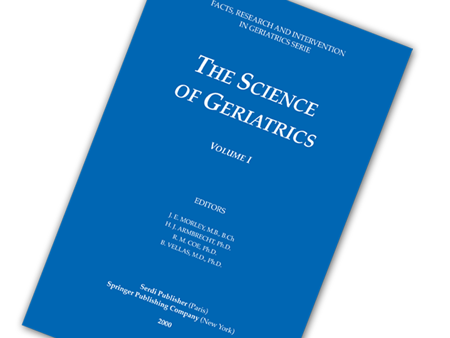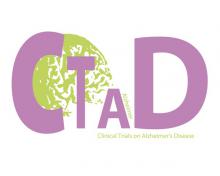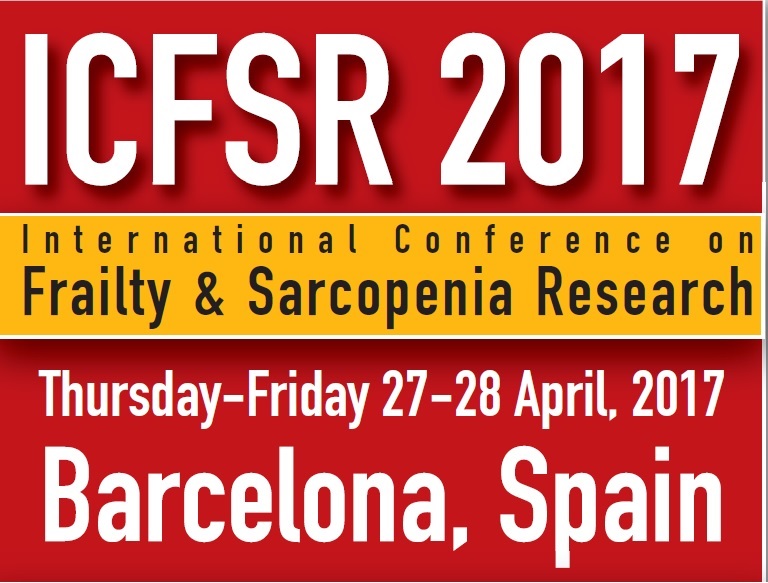COMMUNICATION 1
Aging Research Supported by the National Institute on Aging (NIA) (Abstract 1)
Symposium Background – In the United States, the population age ≥ 65 is projected to almost double (98 million) in 2060. Persons reaching 65 years have an average life expectancy of an additional 19.4 years. As we age, our risk for many types of diseases and/or functional impairments/disability increases dramatically. Considerable attention is paid by the U.S. Department of Health and Human Services (HHS) to the health and wellbeing of older Americans. The National Institute on Aging (NIA) leads a broad research portfolio to understand the nature of aging and to extend the healthy, active years of life. Evidence-based research findings support the work of other Federal agencies in the delivery of services and supports including educational programs for this population. This symposium will discuss recent research findings to improve functional status and provide insights on future research priorities including the role of the recently established NIA Central Biorepository. It will also describe the successes and challenges of services and supports evidence-based program models, and educational initiatives implemented in communities across the Nation. Presentation will highlight: A) Discoveries suggesting that extension of lifespan (via calorie restriction and various drugs) is associated with increase in healthspan/better function in animal models – and the CALERIE (Comprehensive Assessment of Long-Term Effects of Reducing Intake of Energy) findings suggesting that some components of the impact of calorie restriction in animals can be found humans. B) Discoveries regarding increasing lifespan without accompanying increase in years lived with physical or cognitive disability, according to supported behavioral and social science research. C) Studies exploring the relationship between age-related cognitive decline/mild cognitive impairment/dementia and various interventions (including exercise), with findings showing that no definitive evidence to support a particular intervention is currently available. D) A perspective on reducing cardiovascular events from ASPREE (Aspirin in Reducing Events in the Elderly); results of SPRINT-MIND (substudy of Systolic Blood Pressure Intervention Trial) on reducing risk of dementia and mild cognitive impairment.
Marie A. Bernard, MD – National Institute on Aging (NIA), National Institutes of Health (NIH), U.S. Department of Health and Human Services (HHS), building 31, 5th floor, Bethesda, Maryland, 20892. Email: mbernard@nia.nih.gov
COMMUNICATION 2
Aging Research Supported by the National Institute on Aging (NIA): Announcing the NIA Central Biorepository (Abstract 2)
Presentation will highlight: A) Research aimed at maintaining independence in mobility. Recommendations on clinically meaningful cut-points for muscle mass/function, future directions for potential new interventions to improve muscle function. Testosterone administration for physical functional deficits; effects on frail older men. B) Efficacy of structured physical activity interventions in slowing progression of frailty or preventing mobility disability in high-risk older persons; slow walking speed and physical activity in osteoarthritis. C) Results of workshop on myosteatosis as an important feature of muscle composition in aging and its impact on metabolism and function. Energy metabolism in skeletal muscle as promising novel target for interventions to improve function/symptoms in heart failure. D) STRIDE, an ongoing multifactorial fall injury prevention strategy found efficacious in more tightly controlled settings, under way in real-world health care settings; the model intervention focuses on a partnership between primary care physicians and falls care managers. Vitamin D supplementation in low circulating vitamin D and impaired physical function to reduce falls risk/improve walking speed. E) Research on multiple chronic conditions in old age showing synergistic effects of differing combinations of co-existing conditions on symptoms and functional status. F) Introducing the NIA Central Biorepository, its collections (example, the LIFE Study-Lifestyle Interventions and Independence for Elders) and role on resources sharing to open a wide array of aging research.
Rosaly Correa-de-Araujo, MD, MSc, PhD – National Institute on Aging (NIA), National Institutes of Health (NIH), U.S., Department of Health and Human Services (HHS), Address: 7201 Wisconsin Avenue, Suite 3W200, Bethesda, Maryland, 20892. Email: rosaly.correa-de-araujo@nih.gov
COMMUNICATION 3
Chronic Disease Self-Management Education (CDSME) Programs and Other Services and Supports Resources Funded by the HHS Administration for Community Living (ACL) (abstract 3)
The Administration for Community Living (ACL) funds the delivery of services and supports primarily by states and network hubs of community-based programs, with the main purpose of promoting community integration, healthy aging and independent living. Educational programs also aim to improve chronic or multimorbidity health conditions through behavior change and self-management. Relevant resources are available to help older adults connect to services and supports in their communities. Presentation will highlight: A) The CDSME programs providing older adults and adults with disabilities with education and tools to help them better manage chronic conditions (e.g., diabetes, heart disease, arthritis, chronic pain, and depression). Implemented through competitive grants to state agencies, area agencies on aging, nonprofits, universities, and tribes, funds are used to develop a sustainable infrastructure to deliver evidence-based programs in communities and empower self-care. Major goals: 1) Significantly increase these populations number in underserved areas and participation in evidence-based self-management education and support programs. 2) Implement innovative contracts and partnerships to support CDSME programs. Embed programs into an integrated, sustainable evidence-based prevention program network hub via centralized, coordinated processes. In 2016 and 2017, 20 forward-funded cooperative agreements (project periods of two-three years) totaled $12.9 million. B) Model services and supports programs and resources available to older adults across the country (The Aging and Disability Resource Centers (ADRCs), the Area Agencies on Aging (AAAs), the Senior Centers and Supportive Services for Older Adults program; the Health, Wellness, and Nutrition programs; and, the Eldercare Locator, a nationwide service, connects older adults and their caregivers with trustworthy local support resources.
Carol Nohelia Montoya, FMD, MPH – Florida Health Networks (FHN), Address: 13899 Biscayne Blvd, Suite 205, North Miami Beach, FLorida 33181. Email: cnmontoya@flhealthnetworks.org



